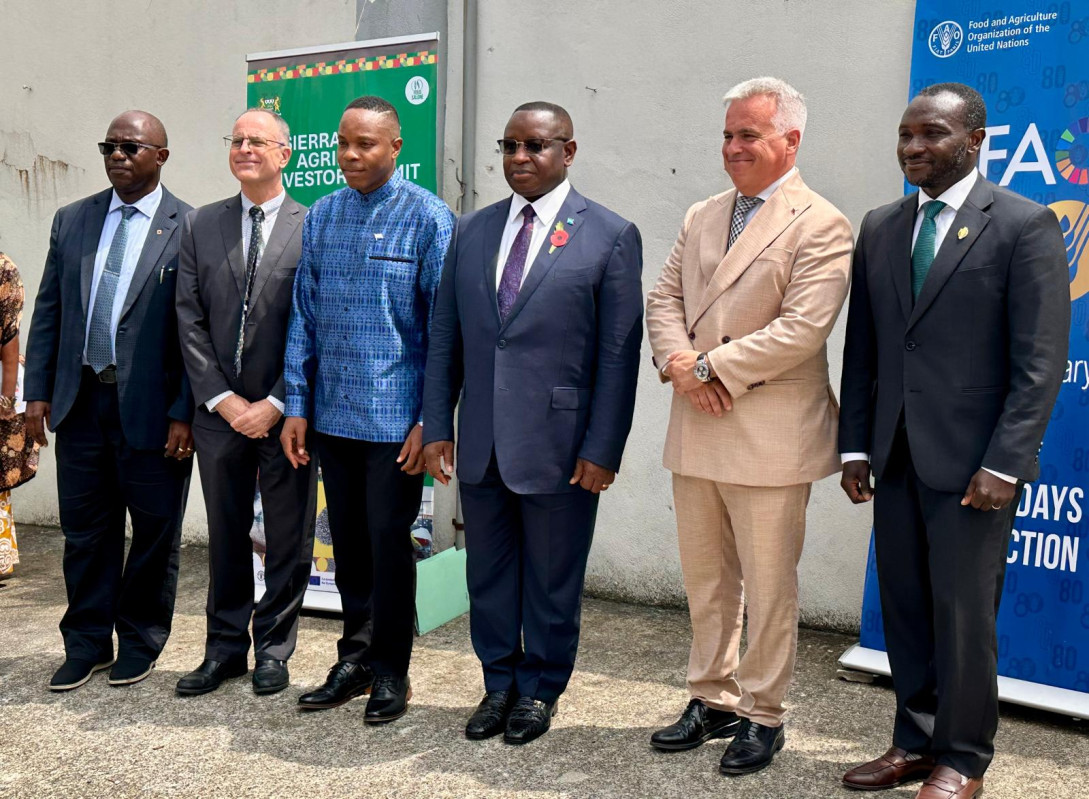Key Outcomes: Investment Commitments and Financial Access
A major milestone of the Summit was the signing of a EUR 10 million financing agreement between the European Investment Bank (EIB) and Vista Bank.
The facility is designed to expand access to finance for small and medium-sized enterprises (SMEs), prioritizing critical value chains such as rice, cocoa, cashew nuts, palm oil, cassava, coffee, and fruit and vegetable processing.
This agreement represents a tangible step toward increasing private sector participation in Sierra Leone’s agrifood industry and signals growing confidence among international development finance institutions in the country’s economic direction.
Strengthening the Investment Climate
Throughout the Summit’s panel discussions and networking sessions, government representatives outlined reforms to make Sierra Leone more attractive to investors — including streamlined business registration, improved land zoning, and investment-friendly policies aimed at reducing administrative bottlenecks.
These measures are part of a broader effort to create a conducive business environment that encourages sustainable value chain development and agro-industrial growth.
The government’s approach underscores a whole-of-government commitment to modernizing agriculture and positioning Sierra Leone as a competitive agrifood investment destination.
Global and Regional Partnerships
The Summit’s success was underpinned by collaboration among key international partners.
The Food and Agriculture Organization (FAO), European Union (EU), UK’s Foreign, Commonwealth & Development Office (FCDO), British International Investment (BII), the Africa Resilience Investment Accelerator (ARIA), and Invest Salone all contributed technical and strategic support.
FAO’s Representative, Saeed Abubakar Bancie, reaffirmed the organization’s support in translating the Feed Salone vision into concrete action through technical assistance.
The European Union, represented by Martin Wiese, emphasized alignment with the Global Gateway strategy for Africa, while British High Commissioner Josephine Gauld reiterated the UK’s continued partnership in boosting agribusiness investment and job creation.
The Sierra Leone Agrifood Investor Summit marks a strategic inflection point in the country’s journey toward agricultural self-sufficiency and economic diversification.
It demonstrated a unified front between government, private sector, and development partners to transform agriculture into a driver of inclusive growth and resilience.
Sierra Leone’s Agriculture Sector: Context and Key Facts
Sierra Leone’s agriculture sector remains the backbone of its economy, employing more than half of the population and contributing about 25% of national GDP (The Global Economy, 2024).
Despite its vast potential, only around 20% of the country’s 5.4 million hectares of arable land is currently cultivated (World Bank, 2024).
This underutilization presents significant room for expansion, particularly through mechanization, irrigation, and investment in value addition.
According to the Food and Agriculture Organization (FAO), total cereal production in 2024 reached approximately 1.6 million tonnes, a 16% increase above the five-year average.
The improvement reflects gains in input access and the expansion of rice cultivation under national initiatives such as Feed Salone.
However, productivity remains constrained by limited access to finance, inadequate rural infrastructure, and reliance on smallholder farming systems.
The U.S. International Trade Administration highlights that while Sierra Leone enjoys favourable climatic conditions and fertile land, it continues to import large volumes of rice — the national staple — indicating both a challenge and a clear investment opportunity.
Meanwhile, the World Bank identifies agriculture as one of the country’s most climate-vulnerable sectors, underscoring the importance of climate-resilient technologies and sustainable land-management practices.
For policymakers and investors alike, these indicators reinforce Sierra Leone’s dual narrative: a sector rich in potential but requiring sustained investment, innovation, and partnerships to unlock full productivity.
With renewed government commitment and growing international engagement, the country’s agrifood transformation stands at a decisive moment — one that could shape the future of food security and economic growth across West Africa.





